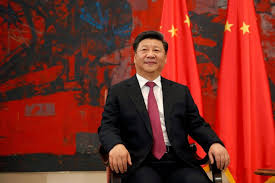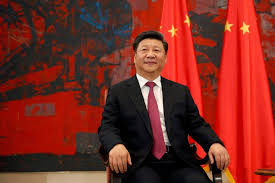
China’s Belt and Road Forum: Should India get back on board?
Delivering a keynote address to a mammoth gathering of 1500 people, that included 29 heads of the states and officials, entrepreneurs, financiers, academicians and journalists from over 130 countries including figures such as Russian President Vladimir Putin, UN Secretary-General Antonio Guterres, World Bank President Jim Yong Kim, and Managing Director of the International Monetary Fund Christine Lagarde, Chinese president Xi Jinping reminded people of Zhou Enlai’s speech at the Afro-Asian Conference at Bandung in April 1955 that was also represented by the 29 heads of the states. If India was the prime mover of the conference in Bandung, China is in the driver’s seat as far as the Belt and Road Forum is concerned, and India is conspicuously absent after it boycotted the Forum on the pretext of sovereignty.
The Silk Road spirit
In his address, Xi Jinping said “China’s construction of the Belt and Road Initiative is not to make a new start, but to connect development strategies of different countries and complement each other’s advantages … China is willing to share its development experience with all the rest of the world, but we will not intervene into other nation’s internal affairs, export our social system and development model, nor force others to accept them.” Reiterating the ‘Silk Road Spirit’, the Chinese president said, “Spanning thousands of miles and years, the ancient silk routes embody the spirit of peace and cooperation, openness and inclusiveness, mutual learning and mutual benefit.” Reassuring the gathering of China’s ‘peaceful rise’, he said, “We will not follow the old way of geopolitical games during the push for the Belt and Road Initiative, but create a new model of win-win and cooperation. It will not form a small group undermining stability, but is set to build a big family with harmonious co-existence.”
If at Bandung, Zhou Enlai was successful in smashing the international blockade by seeking commonalities between the nations, in Beijing Xi Jinping has been successful in smashing protectionism and convincing the nations about common development, the globalisation with Chinese characteristics, and even common security. In order to bulldoze the $1.4trillion ‘project of the century’, Xi Jinping pledged $14.49 billion more to the existing $40 billion Silk Road Fund founded in late 2014.The Development Bank of China and the Export-Import Bank of China has pledged to inject $124 billion in the Belt and Road Initiative to support infrastructure, financing and industrial capacity. This is understandable as China’s trade volume and investment with the Belt and Road Initiative countries in 2016, exceeded $3 trillion and $50billion respectively.
